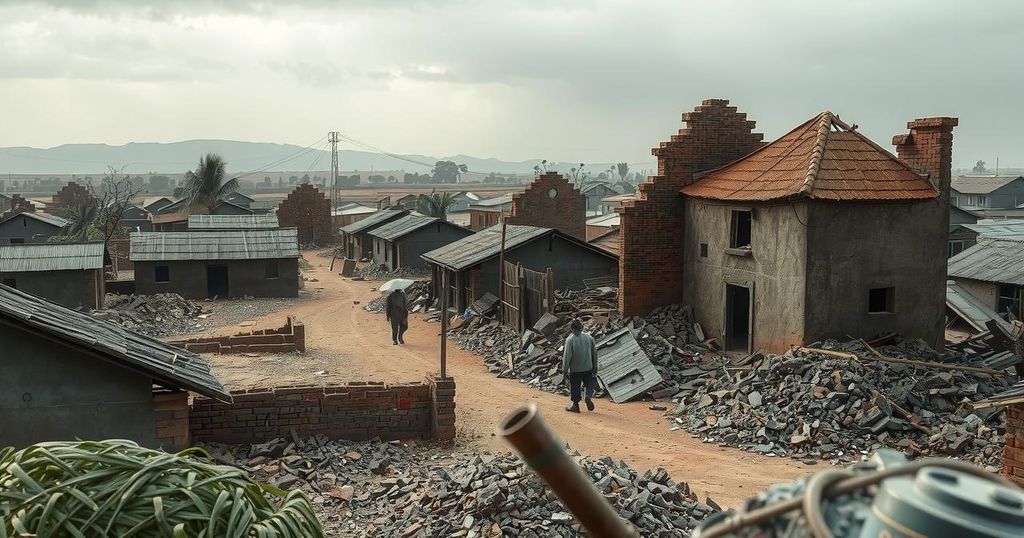An airstrike by South Sudan’s airforce killed at least 19 people in Nasir. This incident follows recent clashes with the White Army and raises fears of renewed civil conflict. The government accuses Riek Machar’s party of collaboration with the militia, which they deny. The airstrike appears to be a potential act of retaliation after a U.N. helicopter was attacked, adding to the region’s unrest.
An airstrike by the South Sudanese airforce resulted in at least 19 deaths in Nasir, located in the eastern part of the country, as reported by local residents. This incident occurred shortly after government forces retreated from the area amid serious clashes with the ethnic militia known as the White Army. These conflicts are raising concerns of a potential resurgence of the civil war that occurred from 2013 to 2018, which resulted in hundreds of thousands of fatalities.
The South Sudanese government attributes the tensions to the party of First Vice President Riek Machar, who is associated with the Nuer ethnic group. They accuse Machar of partnering with the White Army, which collaborated with his forces during the civil war against the Dinka troops loyal to President Salva Kiir. Machar’s camp has refuted these allegations.
Reports indicated that on March 7, a U.N. helicopter faced an assault while attempting to evacuate around 27 soldiers from Nasir, leading to the deaths of a South Sudanese general among others. Information Minister Michael Makuei confirmed that the airforce conducted bombing operations in Nasir on Monday morning, though community leader Kang Wan clarified that the airstrike occurred late on Sunday.
According to community leader Kang Wan, out of the 19 deceased, 15 died instantly while others succumbed to injuries later. Eyewitnesses noted seeing 16 bodies, with claims that all victims sustained severe burns. Médecins Sans Frontières (MSF) reported that its facility in nearby Ulang treated three injured individuals from Nasir, with two unfortunately declared dead on arrival due to their injuries.
County Commissioner James Gatluak Lew, aligned with Machar, suggested that the airstrike may have been an act of retaliation for the recent helicopter attack. Concurrently, Uganda announced the deployment of special forces in South Sudan’s capital, Juba, purportedly for security purposes, although the South Sudanese government initially denied the presence of Ugandan troops.
In summary, the recent airstrike in Nasir, South Sudan, which resulted in the deaths of at least 19 individuals, has heightened tensions in a region already afflicted by ethnic conflict and instability. Allegations of collaboration between political factions and militia groups further complicate the situation. With regional implications, the dynamics in South Sudan illustrate the ongoing struggle for peace and security in the nation.
Original Source: www.straitstimes.com




